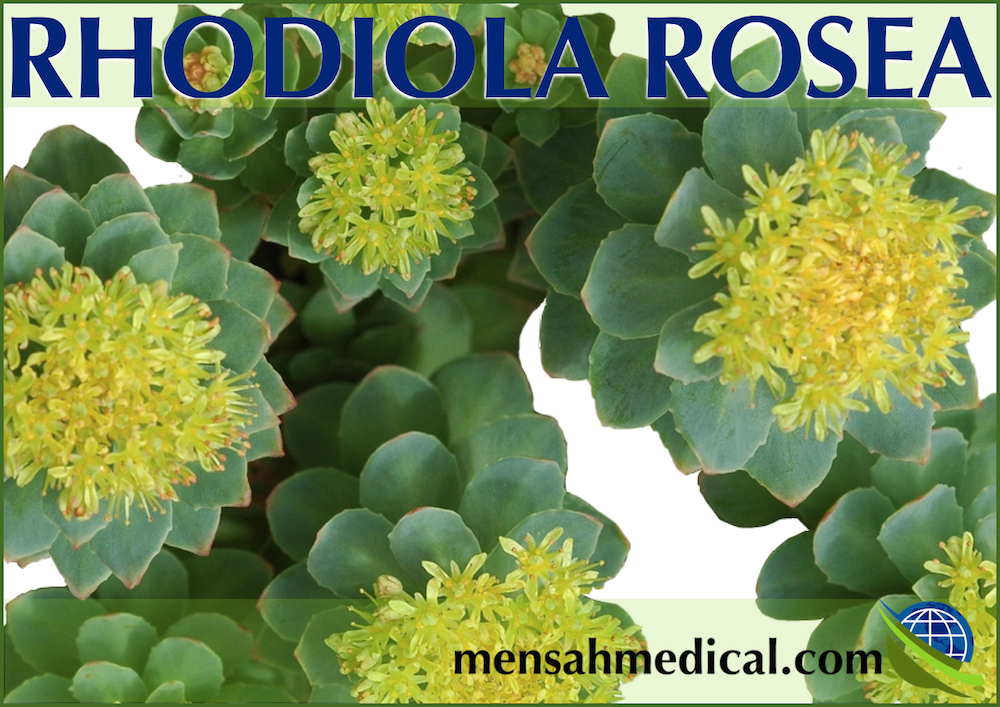Dangers of Rhodiola: Are you taking Rhodiola?
Some of our patients have admittedly tried various herbal remedies that they believe will enhance their recoveries. This month I want to look at Rhodiola in particular, especially the dangers of Rhodiola for our patients with preexisting conditions.
Rhodiola rosea is also sometimes called Arctic root or golden root. It grows at a high altitude in the arctic regions of Europe and Asia. Rhodiola has been used in traditional medicine in Russia and the Scandinavian countries for centuries and has its earliest recorded mention in 77 AD when a Greek physician mentioned using it.
Folks often take it to strengthen the nervous system and alleviate symptoms of depression. In many cases, people are encouraged to take it for short-term durations. It is important to note that there are no long-term safety studies on Rhodiola usage. Rhodiola is also promised to improve memory, help with weight loss, increase energy levels, and boost immunity. Rhodiola may also be used in the treatment of cancer and cardiac problems due to stress, but I don’t recommend it because no studies have confirmed its safety and efficacy for these conditions. Rhodiola is also not proven safe for patients on antibiotics, or antidepressant medication. It is not safe to take with birth control pills and thyroid medication because Rhodiola may contain estrogen receptor-interacting chemicals.
Rhodiola rosea is considered an adaptogen. This means that it’s a botanical that greatly aids the body in adapting to stress.
Dangers of Rhodiola Rosea, also called Arctic Root, Golden Root
Folks are commonly encouraged to increase their dose of Rhodiola until they achieve the desired effect. Many sources claim it is a safe herb with very few side effects. The most common side effects are difficulty sleeping, drowsiness, gastrointestinal distress, headache, and dizziness. Increasing the dose of anything until you achieve the desired effect is a dangerous practice for any botanical and should be avoided.
Reported Side Effects on Patients Taking Rhodiola
These side effects usually occur when you are on a higher dosage and when you take it with caffeine. So let’s say you are a coffee drinker. You are at increased risk. If you are a Coca-Cola or Pepsi lover, symptoms may worsen. Any stimulant product or new weight loss products that contain caffeine will worsen the symptoms of the following:
- Anxiety and agitation
- Nauseous
- Restlessness
- Insomnia
- Hypersalivation
Do you still wonder why you just can’t sleep at night?
Pregnancy and Breastfeeding
There is not enough research to prove that Rhodiola is safe for pregnant women or women who are breastfeeding.
Diabetes
Rhodiola may lower blood sugar levels. If patients are taking medication to lower blood glucose it could make their levels go dangerously low. And if their levels go too low and blood sugars bottom out, they can pass out. The consequences of low blood glucose can be just as dangerous as high blood sugar.
Blood Pressure
Rhodiola may alter blood pressure and is not recommended for patients taking ACE inhibitors. Rhodiola can also increase the risk of bleeding when it’s taken with aspirin or prescription anticoagulants such as warfarin (Coumadin®) or heparin. It is not proven safe with anti-platelet drugs such as clopidogrel (Plavix®). Rhodiola should not be taken with non-steroidal anti-inflammatory drugs like ibuprofen (Motrin®, Advil®) or naproxen (Naprosyn®, Aleve®).
Autoimmune Disorders
Rhodiola can increase the symptoms of autoimmune disorders because it stimulates the immune system. Conditions such as rheumatoid arthritis, inflammatory bowel disorders (Crohn’s disease/ ulcerative colitis), neurological disorders such as multiple sclerosis, and lupus, as well as autoimmune thyroid disorders such as Hashimoto’s and thyroiditis can all be exacerbated by the use of Rhodiola.
Thyroid
Rhodiola is not proven safe for folks on thyroid medicine. It may change (lower?) thyroid levels. If you take thyroid medicine you should not take Rhodiola. If your thyroid testing is irregular, please consult your physician.
Anxiety
A 2008 study at the UCLA Anxiety Disorders Program suggests Rhodiola can aid patients diagnosed with a generalized anxiety disorder (GAD). Rhodiola, however, may have stimulant-like effects and without knowing a patient’s biochemical status, Rhodiola can worsen their symptoms of anxiety. Patients suffering from anxiety who also exhibit the ‘shakes’ from caffeine and ephedrine should not take Rhodiola.
Bipolar Disorder
Rhodiola rosea should not be prescribed to patients with manic behavior disorders. If you have bipolar disorder, for example, Rhodiola can be dangerous because it can cause mania.
Depression
Rhodiola should not be prescribed to patients with antidepressant sensitivity, either. Rhodiola rosea can cause drowsiness in patients on benzodiazepines, SSRI and SNRI antidepressants. It is not recommended for patients on SSRI medications or MAOI medication because it can cause serotonin syndrome.
Albert Mensah, MD, BCIP
 As a physician in this specialized field since 2005, Dr. Mensah, board certified in integrative pediatrics by the American Association of Integrative Medicine, has treated over 3,000 patients with advanced targeted nutrient therapy. He serves on the board at Walsh Research Institute and serves as a clinical instructor for WRI’s international doctor training programs around the world. Dr. Albert Mensah received his undergraduate degree from Northwestern University (Evanston, Illinois) and his medical degree from Finch University of Health Sciences-Chicago Medical School. Dr. Mensah’s residency was in Family Medicine at Swedish Covenant Hospital (Chicago). Following residency, he completed additional fellowship training in academic development at JHS Cook County Hospital (Chicago). From 2005 to 2008, Dr. Mensah treated patients at the former Pfeiffer Treatment Center, a not-for-profit organization and outpatient clinic specializing in the treatment of biochemical imbalances including children with autism. Prior to joining Pfeiffer, Dr. Mensah was a physician at Melrose Park Clinic in Illinois. Dr. Mensah co-founded Mensah Medical in 2008 with Dr. Judith Bowman.
As a physician in this specialized field since 2005, Dr. Mensah, board certified in integrative pediatrics by the American Association of Integrative Medicine, has treated over 3,000 patients with advanced targeted nutrient therapy. He serves on the board at Walsh Research Institute and serves as a clinical instructor for WRI’s international doctor training programs around the world. Dr. Albert Mensah received his undergraduate degree from Northwestern University (Evanston, Illinois) and his medical degree from Finch University of Health Sciences-Chicago Medical School. Dr. Mensah’s residency was in Family Medicine at Swedish Covenant Hospital (Chicago). Following residency, he completed additional fellowship training in academic development at JHS Cook County Hospital (Chicago). From 2005 to 2008, Dr. Mensah treated patients at the former Pfeiffer Treatment Center, a not-for-profit organization and outpatient clinic specializing in the treatment of biochemical imbalances including children with autism. Prior to joining Pfeiffer, Dr. Mensah was a physician at Melrose Park Clinic in Illinois. Dr. Mensah co-founded Mensah Medical in 2008 with Dr. Judith Bowman.
Save
